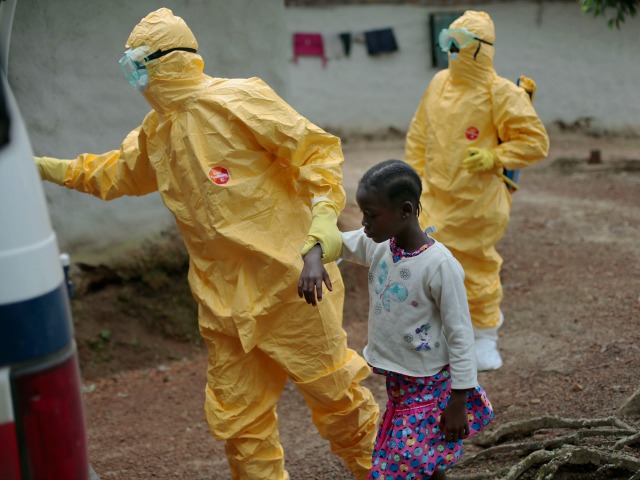
Liberian officials announced in late October that health workers had made significant gains preventing the acceleration of the Ebola virus in the capital, Monrovia. Unfortunately, those gains appear short-lived, as new Ebola epicenters appear in Monrovia’s suburbs.
As reported earlier this week, the community of Jene-Wonde has become one of the most dangerous areas for Ebola contamination in recent days, as an Ebola victim was brought to the town for burial and triggered a new mini-outbreak in the community. The town– population 300— now faces potential extinction as the diagnosis tally continues to grow.
Jene-Wonde is not the only town to face similar struggles, as the government continues to attempt to pick up the piece in Monrovia. As Front Page Africa reports, the entirety of Grand Bassa County almost reached 21 days without a new Ebola diagnosis– the amount of time necessary to officially declare an area Ebola-free. Between November 1 and November 10, however, FrontPage Africa Reports that officials have confirmed six news cases in the county.
“From the background investigation presented by the active case finders and corroborated by the contact tracers, it became very apparent that Popo Beach has become the epicenter of a new Ebola outbreak,” according to a report obtained by the newspaper, referring to a small coastal area in the county. That community’s Ebola outbreak has been traced back to a man allegedly stabbed by his wife in a lover’s dispute.
Despite the clear uptick in number of cases in Liberia, the Agence France-Presse nonetheless published a story yesterday claiming that the number of Ebola diagnoses are dwindling. The national numbers are, indeed, diminishing. According to Liberian assistant health minister Tolbert Nyenswah, the federal government is now recording 50 cases a day, as opposed to the previous peak of 500 daily. While the news is welcome to the federal government, it ignores that many communities outside of the capital are just beginning to experience the devastating loss that Ebola brings with it.
It also deigns to note that rebuilding Liberia from the ashes will be an uphill battle. Ebola not only hurt those who were infected by it; it ravaged the nation’s medical infrastructure. This has caused, for example, an increase in the number of cases of mothers giving birth without medical care and abandoning their babies in dumpsters as they are rejected from hospitals. Of those children living before the Ebola crisis, an estimated 12,000 are orphaned, now the responsibility of a broken state.

COMMENTS
Please let us know if you're having issues with commenting.